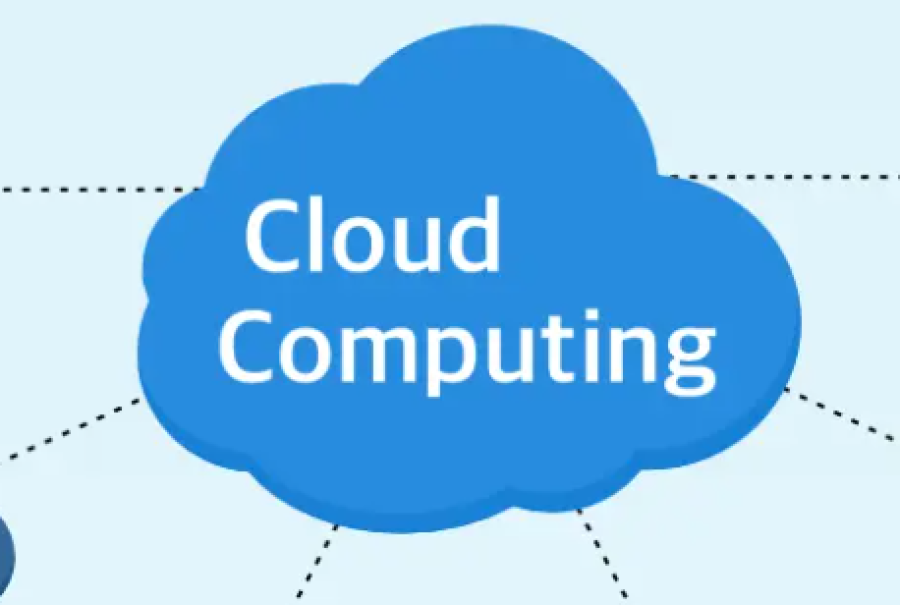In the modern gaming landscape, cloud computing has revolutionized how players experience their favorite games, enabling real-time play on devices worldwide. Gone are the days when gaming required heavy downloads, extensive storage, and powerful hardware. With the advancement of cloud technology, players can now access high-quality games instantly, from anywhere with an internet connection. Cloud servers handle the complex data processing, delivering seamless, real-time experiences for users and creating a new era in online gaming.
The Role of Cloud Computing in Gaming
Cloud computing in gaming involves using remote servers to store and process data, then streaming it directly to the player’s device. This removes the need for local storage or powerful hardware, as cloud servers perform all the heavy lifting in real-time. Essentially, the game itself runs on cloud servers, and the player’s device acts as a display and input mechanism.
One of the biggest advantages of cloud-based gaming is the ability to offer high-performance gameplay without the constraints of a device’s specs. This means that even users with basic devices can enjoy graphically demanding and data-intensive games without any issues. Additionally, cloud gaming ensures that players always have the latest version of the game, eliminating the need for manual updates or patches.
How Cloud Servers Enable Real-Time Gaming
Cloud servers play a crucial role in delivering real-time gaming experiences. To achieve this, several key factors come into play:
Data Processing and Storage: Cloud servers manage vast amounts of data, from game files to player interactions. This data is processed in real time, which allows for instant responses within the game, enabling players to experience smooth, lag-free gameplay.
Low Latency Transmission: Minimizing latency is essential for real-time gaming. Cloud servers are strategically located worldwide, bringing data centers closer to players to reduce transmission time. This low latency setup allows for faster data transfer, which is vital for games that rely on quick player reactions, such as action and sports games.
Scalability and Load Management: Cloud computing provides scalability, which allows games to handle millions of players simultaneously without compromising performance. Servers can adjust to sudden spikes in demand, balancing the load to maintain stable performance even during peak hours.
Device Compatibility: Cloud servers eliminate the need for high-end gaming hardware, making real-time gaming accessible on various devices, from smartphones and tablets to laptops and smart TVs. This broad compatibility has opened up gaming to a wider audience, allowing more people to participate in real-time play regardless of device specifications.
Enhanced Security: With games hosted on secure cloud servers, players benefit from added layers of protection for their data and financial transactions. This is particularly crucial in games involving real money, as it prevents unauthorized access and ensures that player information remains private.
Aviator: A Cloud-Based Game with Instant Play
One standout example of cloud-powered gaming is the Aviator game, a popular real-money crash game that leverages cloud servers to provide instant play without downloading. Aviator is an innovative game where players place bets on a multiplier that continuously increases. The key is to cash out before the multiplier stops climbing (or "crashes"), creating a game that requires quick reactions and decision-making.
Because Aviator operates on cloud servers, players can join instantly, enjoying a smooth experience without delays. The game’s reliance on cloud technology ensures real-time interactions, with each player’s actions and bets processed instantly. For those interested in the mechanics of the Aviator game real money, cloud computing enables the seamless, real-time action that makes this game so engaging.
Benefits of Cloud Computing in Real-Time Games
The shift to cloud computing has brought numerous benefits to real-time gaming. Here’s how cloud servers enhance the experience for players:
Instant Access and No Downloads: Cloud-based games require no installation, so players can start playing right away. This is ideal for games that players might want to try immediately without waiting for lengthy downloads or updates.
Cross-Platform Play: Since cloud games run on remote servers, they can easily be accessed on multiple platforms. Players can switch devices seamlessly and pick up where they left off, whether on a mobile phone, laptop, or tablet.
Consistent Game Quality: Cloud servers ensure that games run with high-quality graphics and performance, even on low-spec devices. Players enjoy a stable experience that isn’t affected by hardware limitations, with updates and improvements managed automatically by the game provider.
Reduced Cheating and Hacking Risks: Since cloud gaming doesn’t involve local game files, it becomes harder for hackers to manipulate game data. This is especially important in real-money games like Aviator, where security and fair play are essential for user trust.
Challenges of Cloud Gaming
While cloud gaming offers numerous advantages, it’s not without its challenges. Here are some of the main issues associated with this technology:
Internet Dependency: Cloud gaming requires a stable internet connection. Players with slower or unstable connections may experience latency, which can hinder the real-time experience. High-speed internet is essential for cloud gaming, and for players in areas with limited internet access, this can be a barrier.
Data Usage: Streaming games via cloud servers can consume significant data. For players with limited data plans, this can quickly add up, especially with graphically intense games. Data consumption remains a consideration for cloud gaming providers and users alike.
Server Downtime: Like any cloud service, server maintenance or technical issues can disrupt gameplay. While providers strive to minimize downtime, the possibility of a temporary disruption still exists. For players in the middle of a real-time game, server downtime can be a frustrating experience.
Device Compatibility Limitations: Although cloud gaming supports a wide range of devices, some older models may not handle the demands of streaming well. This can affect performance, particularly on devices with outdated operating systems or hardware.
Verdict
In summary, cloud computing has transformed real-time gaming, enabling instant, high-quality gameplay accessible from almost any device. By understanding how cloud servers work behind the scenes, players can appreciate the technology that powers their gaming experience. As innovations in cloud infrastructure and internet speed continue, the future of real-time, cloud-based gaming looks brighter than ever.









